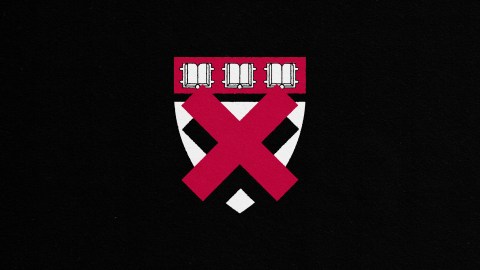The case against hiring people from Ivy League schools

- According to Liz Elting, graduates of the Ivy League had literally peaked in school. They lacked the hunger and ambition she needed in her company.
- Of the many lessons she learned, one is that attitude is just as important as experience.
- Another is to hire slowly, but fire quickly.
When I was first beginning as an entrepreneur, I didn’t know how much I didn’t know in regard to hiring. Most of my learning was of the seat-of-my-pants variety and I made many mistakes. While ethics were important to me from day one, I hadn’t yet learned what else might be important, because ethical doesn’t necessarily mean motivated. There are plenty of fine individuals who are perfectly satisfied with the status quo.
Our first few employees were a comedy of errors. Here’s where we went wrong with hiring in the early days. We had burned ourselves out by working so many 100-hour weeks, trying to get some traction in the industry. We had been successful in landing business, but we were still grinding so hard that we didn’t have the effort to put into our hiring process; we were afraid that would take away from our focus on sales.
The thing about desperation (mixed with exhaustion) is that it doesn’t lead to the best decision-making. We needed people so badly that we settled for the first ones who walked in the door, convincing ourselves that they could do the job, when no part of their interview answers should have led us to that conclusion. That’s when I learned the most important piece of advice there is regarding employees, which comes from my mentor, Jack Daly: Hire slowly, fire quickly. We lost a lot of ground in the beginning because we’d staffed up so poorly.
We should have waited for the rock stars who we could see with us 5 to 10 years down the line, but we were too overwhelmed and over-tired to employ that kind of patience. Great people were hard to find, and back in the mid-1990s, no one was excited to work for a startup, especially given the low draw in sales and crazy hours in production. The dot-com boom was on the horizon, but we were still in the nascent days, so there wasn’t the excitement or cachet of working on the ground floor of a startup. No one had gotten beyond-their-wildest-dreams-rich after their startup had been acquired by Google or Facebook yet — neither entity existed.
While we offered unlimited commissions to our sales teams and bonuses to our rock stars in production, the people we brought in were working such grueling hours that eventually the money wasn’t worth it to them and we’d lose them. Our job in the early days with staffing was trying to maintain that sweet spot between hungry and burned out.
Over the years, I developed a much better sense of who would be the right fit for our team. One of the first assumptions I had to get past was that the best employees would come from Ivy League schools. While I was always impressed with the kind of education that came with a degree from places like Harvard, Yale, and Princeton, the Ivies didn’t necessarily churn out people who were hungry to be successful in sales or production roles, at least at our company. These kids were often less willing to go out of their way to drum up business or innovate and they had the wrong attitude. In my experience, they often didn’t want to pay their dues, having assumed that obligation had been satisfied through their tuition payments and the performance that had gotten them accepted initially. Their performance had literally peaked in school. The longer I hired people, the less correlation I saw between prestigious schools and success within the company.
I interviewed every single employee myself until we were a 100-person company and many more over the years. Once I’d gotten into the groove of hiring, I discovered that attitude was just as important as experience. I’d seek out those who impressed me, those who thought big. I wanted those looking for a company where they could grow and where they had a stake in growing the company. I wanted them to be able to envision themselves three positions up, ten years in the future. I appreciated those who came prepared with lists of questions, not just about the company, but also about me and my experience, because it showed ambition and a natural curiosity. I wanted to see people who’d make the effort, so I was less impressed with those who wanted to know about information readily available on the first page of our website. If nothing else, at least read the landing page! I figured if they weren’t willing to make the effort for a conversation with me, why would I believe they’d do it with our clients?
Given the choice, I’d opt for someone with skills over experience, a practice favored by Sheryl Sandberg that she learned from Meg Whitman. When Sandberg interviewed at eBay, she was completely honest with Whitman, saying she’d lacked experience in the tech world, a fact that had gotten her summarily rejected by a number of tech companies. (Imagine being the hiring manager who passed on Sheryl Sandberg! That must have felt like all those editors who didn’t see any potential in the first Harry Potter book.)
My ideal employee was someone with integrity who also was incredibly service oriented.
In an interview with Reid Hoffman, LinkedIn’s cofounder, Sandberg said, “[Meg] said ‘no one has any experience, because no one has ever done this before. I want to hire people with great skills, and I think hopefully you have great skills.’ I really took that lesson to heart…. I decided what mattered was skills. I was going to go hire the best and the brightest, and people who were going to bring their passion and dedication and work hard. And actual experience in the field or related fields didn’t matter. That opens up a lot of hiring, because then you can just look for skills.”
My ideal employee was someone with integrity who also was incredibly service oriented. I particularly liked those who’d been in sports because athletics promotes leadership, a competitive drive, and teamwork. Winning was important to them. I appreciated those who’d waited tables in bars and restaurants because they’d seen people at their worst and had learned to navigate difficult situations with diplomacy. (Few skills will get you better equipped for how rough the world can be than managing the Saturday night dinner rush.) I favored those who came out of college with student loans because those who hadn’t had everything paid for were hungrier. And those who’d encountered adversity were more resilient. I sought out enthusiasm, energy, and a track record of success.
One of my favorite employees started in the early days, and what blew me away was his can-do attitude. Jamie Wengroff was perpetually cheerful and upbeat and could not do enough for his clients. He used to walk around the office saying, “If it’s to be, it’s up to me.” He set the standard for the kind of person we wanted to hire.
Sometimes applicants were phenomenal on paper but did poorly in the interviews. I believed that both eye contact and a decent handshake were important and lacking either left me with a poor impression. I was tough in the interviews and had specific expectations. If someone came in and gave answers that didn’t align with what they had written on their CV, I’d pass on them. Dressed unprofessionally? Pass. Job hopper? Pass. If someone presented with low energy, negativity, or no questions? Pasadena.
Please don’t even get me started on the college grads who brought their parents with them to the interview, or, worse, had their folks follow up with me.
I wish I was kidding.




